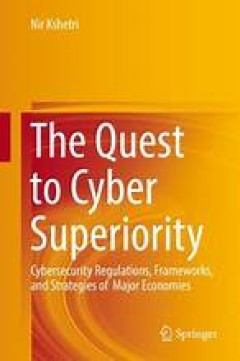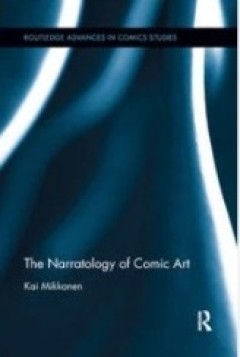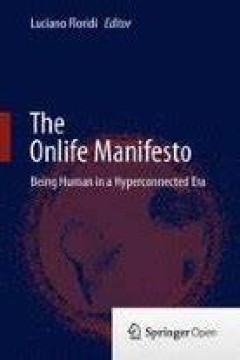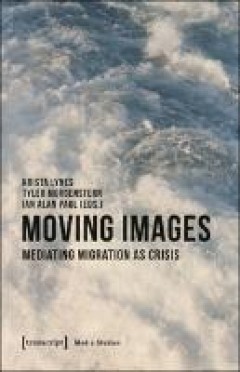Filter by

Social-Media-Marketing kompakt
Dieses Buch verdeutlicht, dass Social-Media-Marketing heute zu einem integralen Bestandteil der Online-Kommunikation geworden ist. Doch welche Ziele lassen sich damit erreichen? Welche Plattformen bieten welche Möglichkeiten? Wie kann der Erfolg einer Social-Media-Kampagne gemessen werden? Von welchen Plattformen sollte man die Finger lassen? Welche Erfolgsfaktoren zählen? Welche Social-Media…
- Edition
- 1
- ISBN/ISSN
- 978-3-658-33866-4
- Collation
- nMarketing/Manajeme
- Series Title
- -
- Call Number
- 658.8

The Quest to Cyber Superiority
This book explains how major world economies are recognizing the need for a major push in cyber policy environments. It helps readers understand why these nations are committing substantial resources to cybersecurity, and to the development of standards, rules and guidelines in order to address cyber-threats and catch up with global trends and technological developments. A key focus is on speci…
- Edition
- 1
- ISBN/ISSN
- 978-3-319-40554-4
- Collation
- Hukum
- Series Title
- -
- Call Number
- 340

The Narratology of Comic Art
By placing comics in a lively dialogue with contemporary narrative theory, The Narratology of Comic Art builds a systematic theory of narrative comics, going beyond the typical focus on the Anglophone tradition. This involves not just the exploration of those properties in comics that can be meaningfully investigated with existing narrative theory, but an interpretive study of the potential in …
- Edition
- -
- ISBN/ISSN
- 9781315410128
- Collation
- 324 halaman
- Series Title
- -
- Call Number
- 700 MIK n

Aesthetic Experience of Metabolic Processes
Simultaneously speculative and inspired by everyday experiences, this volume develops an aesthetics of metabolism that offers a new perspective on the human-environment relation, one that is processual, relational, and not dependent on conscious thought. In art installations, design prototypes, and researchcreation projects that utilize air, light, or temperature to impact subjective experience…
- Edition
- Ed. 1
- ISBN/ISSN
- 9783957961815, 9783957961808
- Collation
- 182
- Series Title
- Future Ecologies, 2
- Call Number
- 302.23 FOR a

Hacking the Academy: New Approaches to Scholarship and Teaching from Digital …
"On May 21, 2010, Daniel J. Cohen and Tom Scheinfeldt posted the following provocative questions online: “Can an algorithm edit a journal? Can a library exist without books? Can students build and manage their own learning management platforms? Can a conference be held without a program? Can Twitter replace a scholarly society?” As recently as the mid-2000s, questions like these would have …
- Edition
- -
- ISBN/ISSN
- 9780472071982
- Collation
- -
- Series Title
- -
- Call Number
- -

The Onlife Manifesto
What is the impact of information and communication technologies (ICTs) on the human condition? In order to address this question, in 2012 the European Commission organized a research project entitled The Onlife Initiative: concept reengineering for rethinking societal concerns in the digital transition. This volume collects the work of the Onlife Initiative. It explores how the development and…
- Edition
- 1
- ISBN/ISSN
- 978-3-319-04093-6
- Collation
- -
- Series Title
- XIV, 264
- Call Number
- -

Mobile Screens: The Visual Regime of Navigation
Nanna Verhoeff’s new book is a must for anybody interested in visual culture and media theory. It offers a rich and stimulating theoretical account of the central dimension of our contemporary existence – interfacing and navigating both data and physical world through a variety of screens (game consoles, mobile phones, car interfaces, GPS devices, etc.) In the process of exploring these new…
- Edition
- Ed. 1
- ISBN/ISSN
- 9789089643797
- Collation
- 212
- Series Title
- MediaMatters, 8
- Call Number
- 526 VER m

Soldiers' Stories: Military Women in Cinema and Television since World War II
From Skirts Ahoy! to M*A*S*H, Private Benjamin, G.I. Jane, and JAG, films and television shows have grappled with the notion that military women are contradictory figures, unable to be both effective soldiers and appropriately feminine. In Soldiers’ Stories, Yvonne Tasker traces this perceived paradox across genres including musicals, screwball comedies, and action thrillers. She explains how…
- Edition
- Ed. 1
- ISBN/ISSN
- 9780822393351
- Collation
- -
- Series Title
- -
- Call Number
- 025.4 TAS s

Moving Images : Mediating Migration as Crisis
In recent years, spectacular images of ruined boats, makeshift border camps, and beaches littered with life vests have done much to consolidate the politics of movement in Europe. Indeed, the mediation of migration as a crisis has worked to shore up various forms of militarized surveillance, humanitarian response, legislative action, and affective investment. Bridging academic inquiry and artis…
- Edition
- -
- ISBN/ISSN
- 9783839448274
- Collation
- -
- Series Title
- -
- Call Number
- 070.4

Optimal Motherhood and Other Lies Facebook Told Us: Assembling the Networked …
An exploration of social media–imposed pressure on new mothers: How the supposed safe havens of online mommy groups have become rife with aggression and groupthink. Many mothers today turn to social media for parenting advice, joining online mothers' groups on Facebook and elsewhere. But the communities they find in these supposed safe havens can be rife with aggression, peer pressure, and…
- Edition
- -
- ISBN/ISSN
- 9780262369374
- Collation
- -
- Series Title
- -
- Call Number
- 307
 Computer Science, Information & General Works
Computer Science, Information & General Works  Philosophy & Psychology
Philosophy & Psychology  Religion
Religion  Social Sciences
Social Sciences  Language
Language  Pure Science
Pure Science  Applied Sciences
Applied Sciences  Art & Recreation
Art & Recreation  Literature
Literature  History & Geography
History & Geography